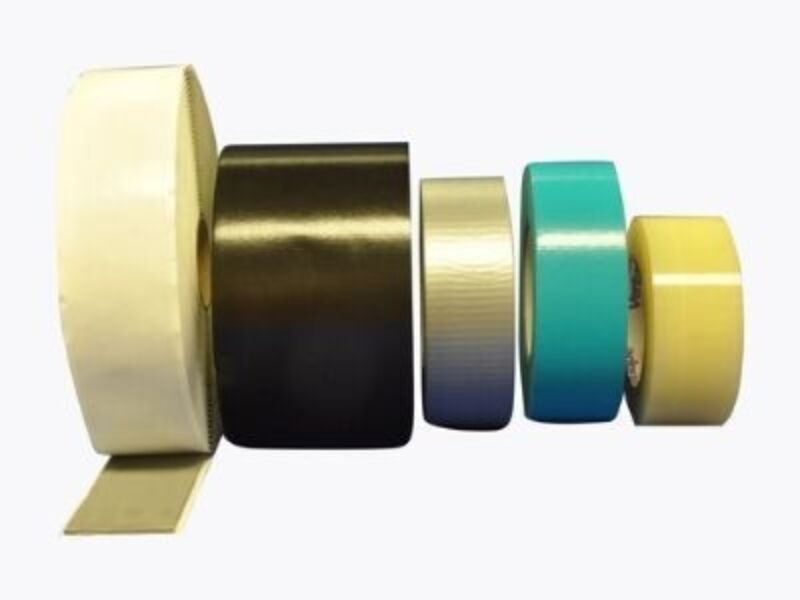The Versatility and Benefits of Silicone Insulation Tape
Silicone insulation tape is an innovative and indispensable tool in various industries, known for its excellent thermal stability, chemical resistance, and electrical insulation properties. Made primarily from silicone rubber, this tape is designed to withstand extreme temperatures, making it a preferred choice for both industrial and DIY projects.
One of the primary applications of silicone insulation tape is in the electrical industry. Its remarkable insulating properties help protect against electrical current, making it ideal for insulating wires, cables, and other electronic components. Unlike traditional vinyl or rubber tapes, silicone insulation tape can operate effectively in temperatures ranging from -65°F to 500°F (-53°C to 260°C). This wide temperature tolerance ensures reliable performance in both hot and cold environments, which is particularly critical in industrial settings.
Besides its electrical applications, silicone insulation tape offers exceptional resistance to UV rays and moisture, which makes it suitable for outdoor use. This durability means that it performs exceptionally well in harsh weather conditions, unlike many other insulation tapes that can degrade and lose effectiveness over time. Whether you are sealing pipes outside, wrapping electrical connections, or insulating tools and equipment, silicone tape ensures long-lasting protection against environmental factors.
Another advantageous property of silicone insulation tape is its ability to bond well to various surfaces. Whether applied to metal, plastic, or even rubber, silicone tape adheres securely, providing a reliable seal that enhances insulation. Additionally, this tape is often self-fusing, meaning it can bond directly to itself without the need for adhesive. This feature not only simplifies the application process but also increases its effectiveness since there are no adhesive residues left behind.
silicone insulation tape

Silicone insulation tape is also highly resistant to chemicals, oils, and solvents, making it a preferred choice in automotive and aerospace industries. In these sectors, equipment often encounters exposure to fuels, lubricants, and other harsh substances. Using silicone tape for insulation and protection ensures that components remain safe and operational, extending their lifespan and reducing maintenance costs.
In the realm of DIY projects, silicone insulation tape has gained popularity among hobbyists and homeowners alike. Its ease of use, combined with its high-performance characteristics, makes it a versatile solution for various home repair needs. Whether it’s wrapping wires for improved safety, creating waterproof seals, or protecting outdoor electrical connections, silicone tape offers a user-friendly, effective solution.
Moreover, as environmental awareness grows, silicone insulation tape stands out as a more sustainable option compared to conventional insulation products. Since it can endure longer without the need for replacement, it reduces waste over time. Additionally, silicone is a non-toxic material, making it a safe option for both indoor and outdoor applications.
In conclusion, silicone insulation tape is a highly versatile and effective material that provides numerous benefits across various applications. Its superior thermal stability, chemical resistance, ease of application, and adaptability to different surfaces make it invaluable for DIY enthusiasts, engineers, and professionals alike. In a world where reliable insulation materials are essential for safety and efficiency, silicone insulation tape emerges as a top choice for those looking for a long-lasting and dependable solution to their insulation needs. Whether tackling electrical insulation tasks or engaging in home repairs, incorporating silicone insulation tape into your toolkit is a wise investment that can yield significant benefits.
-
XIANGFAN Rubber Tape-Ultimate Solutions for All Your Insulation NeedsNewsJun.24,2025
-
XIANGFAN Rubber Tape-Protection for Industrial and Residential ApplicationsNewsJun.24,2025
-
XIANGFAN Rubber Tape: Superior Safety and Sealing for Demanding EnvironmentsNewsJun.24,2025
-
XIANGFAN Rubber Tape: Reliable Solutions for Every Electrical ChallengeNewsJun.24,2025
-
XIANGFAN Electrical & Industrial Tape: Powering Reliability Across IndustriesNewsJun.24,2025
-
XIANGFAN Electrical & Industrial Tape: Excellence in Every ApplicationNewsJun.24,2025
